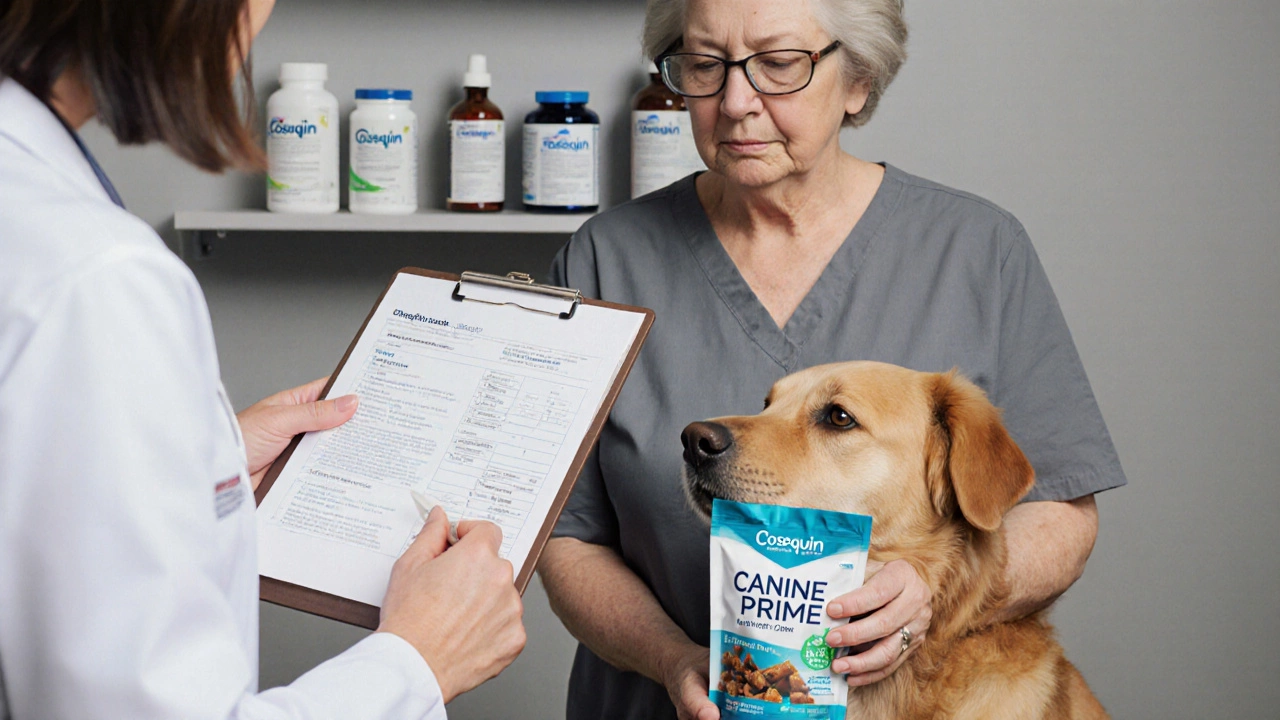Dog Health Supplements: What Works and What to Skip
Feeling confused by all the pills, powders and oils on the market? You’re not alone. Many owners want a quick fix for joint aches, dull coats or low energy, but not every product is safe or useful. The good news is you can pick a supplement that actually helps your dog, without the guesswork.
Common Types of Supplements
Vets usually talk about three main groups: vitamins, omega‑3 oils and joint boosters. Vitamins like vitamin E, B‑complex and zinc support skin, coat and immune health. Too much can cause problems, so stick to the dosage on the label or your vet’s advice.
Omega‑3 oils, especially salmon oil, are popular for rough coats and inflammation. The fish oil contains EPA and DHA, which calm joint pain and improve heart function. Look for products that list the amount of EPA/DHA per serving; low‑quality oils often have filler oils that don’t do much.
Joint supplements usually contain glucosamine, chondroitin and sometimes MSM. They’re most helpful for larger breeds or older dogs that start slowing down. The key is a reputable brand that uses a proven form of glucosamine (like HCl) and doesn’t add unnecessary sweeteners.
How to Pick the Right One
First, talk to your vet. They can run a quick blood check and tell you if your dog is missing anything. Next, read the label: the active ingredient should be listed at the top, and the serving size should match your dog’s weight.
Watch out for “human‑grade” protein powders. Most human shakes have xylitol, artificial sweeteners or high caffeine – all dangerous for dogs. If you want a protein boost, choose a dog‑specific powder that only contains whey or pea protein without added flavors.
Check for third‑party testing. Look for a seal from organizations like NSF or Informed‑Choice. That means an independent lab verified the amount of active ingredients and confirmed the product is free from contaminants.
Start slow. Give half the recommended dose for a few days, watch for any stomach upset, then move to the full amount. If you notice vomiting, diarrhea or itching, stop the supplement and call your vet.
Remember, supplements are not a substitute for a balanced diet. Good quality kibble or fresh‑food meals provide most of the nutrients a dog needs. Use supplements as a targeted addition, not a crutch.
In short, choose a vet‑recommended brand, verify the dosage, and keep an eye on how your dog reacts. With the right supplement, you’ll see a shinier coat, easier moves and a happier pup – all without risking health.




